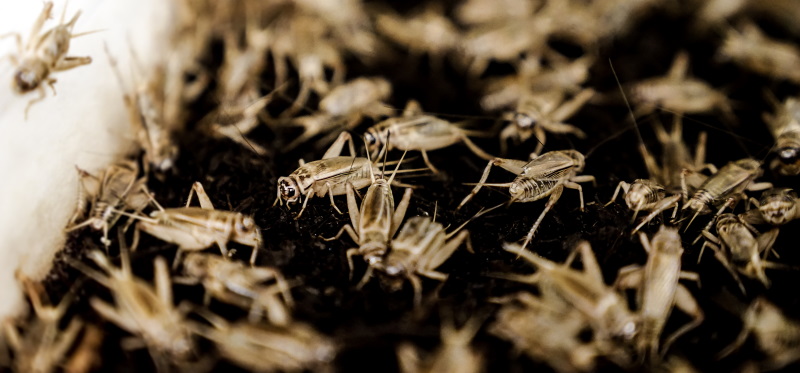On May 26th, Aspire Food Group announced that it has completed construction of its alternative protein manufacturing facility.
London, Ontario is now home to the world’s largest cricket production facility.
Aspire’s new plant will reportedly produce 9000 metric tons of crickets every year for human and pet consumption. That’s about two billion insects to be distributed annually across Canada and throughout the United States.
Aspire also reports that it already has orders for the next two years.
Crickets are currently being explored as a protein-rich superfood. They contain fibre and are already found in grocery stores and restaurants, and have a smaller environmental footprint than traditional protein sources.
The construction was led by EllisDon, and the new London facility, which will be fully operational in the fall, reportedly showcases four first-of-a-kind newly developed technologies; an automated storage retrieval system (ASRS), a new type of HVAC system, a 5G IoT network and an AI solution that’s been recognized by UNESCO.
The company received a grant from the Federal Government of 8.5 million dollars from taxpayers.
With funding under the AgriInnovate Program, Aspire will use the latest smart technology to create the ideal growing conditions for crickets at its facility in London, Ontario. This investment will allow the company to monitor and grow billions of crickets at a time, producing a nutrient-rich protein for premium health food and pet markets. The technology will also significantly cut Aspire's cost of production, making its products more attractive for sale in domestic and international markets
Aspire was formed by five McGill University students in 2013 interested in finding solutions to global food scarcity. The company was launched after the team won the 2013 US$1 million Hult Prize, an annual social entrepreneurship competition that challenges students to build businesses that contribute to solving a pressing social issue.
Aspire began with pilot projects in multiple countries, using different production technologies and markets to become a leader in scalable cricket production. In addition to London, Ontario, the company has a research and development facility in Austin, Texas.
Government praise of the company is focussed on the reduction of green house gas emissions in the production of consumable protein.That is based on a comparison to farmed salmon which is rarely considered a eco-friendly business model.
When tested in its research and development facility in Austin, Texas, Aspire's greenhouse gas emissions from cricket protein production were more than 40 per cent lower than those generated in farmed salmon and organic chicken and turkey production.
So forget the smoked salmon and enjoy some cricket pate at your next dinner party. The government says its good for you and the environment.










